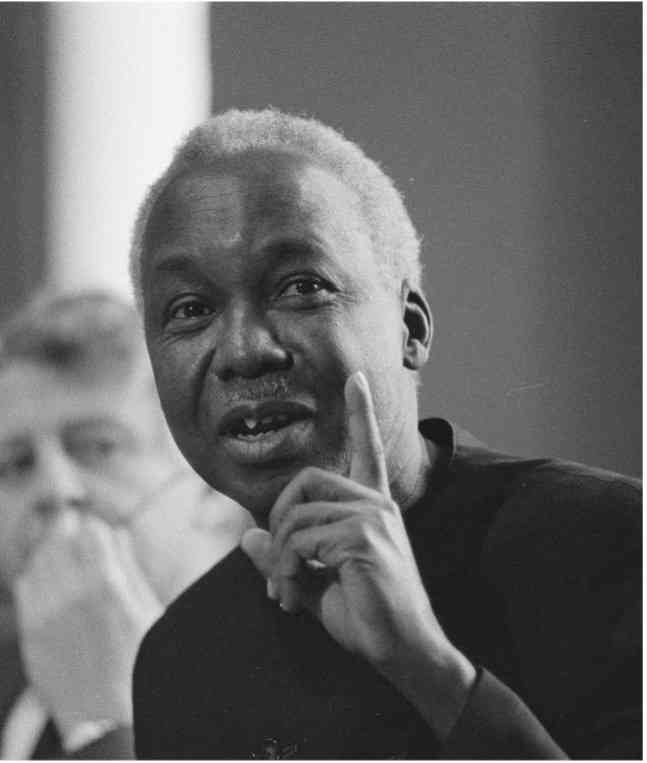
I usually buy literary works, especially on history, whenever I travel outside Zimbabwe. They say history is the best teacher, though its lessons often come too late. History is full of powerful lessons that have shaped civilisations and continue to resonate today. On travelling to East Africa last year, I bought a book authored by AB Assensoh titled African Political Leadership: Jomo Kenyatta, Kwame Nkrumah, and Julius K. Nyerere.
The 200-page paperback is a compelling exploration of leadership that goes beyond conventional wisdom. Assensoh presents thought-provoking ideas and actionable strategies that are both insightful and practical. Reading the part on Julius Kambarage Nyerere was like pulling back the curtain —, everything came into clear view.
Nyerere, the founding president of Tanzania stands as an iconic figure in African leadership history. He believed in Pan-Africanism, a vision that transcended national boundaries and aimed at uniting African countries to form a single, self-sufficient and powerful continent.
A man of great vision, humility and wisdom, Nyerere ushered Tanzania from colonial rule to independence and beyond. His character offers timeless lessons applicable to leaders in various capacities today, whether in government, corporate, or community organisations.
One of the most remarkable traits of Nyerere who was popular as Mwalimu(Teacher) was his humility. Despite his towering influence in Tanzania’s liberation and post-independence governance, Nyerere lived a simple and modest life, setting an example that remains unparalleled. He rejected the trappings of power and chose a life of modesty and service to the people. For instance, when many African leaders embraced lavish lifestyles post-independence, Mwalimu lived in a humble house and regularly visited rural areas to interact with ordinary citizens.
In a practical sense, humility as demonstrated by Mwalimu teaches modern leaders the importance of staying grounded and connected to the people they serve. Today’s leaders can adopt similar practices by ensuring that they are accessible, approachable and open to feedback. Humility fosters trust and loyalty, as subordinates and stakeholders feel that their leader is genuinely concerned about their well-being. Moreover, humility enables a leader to recognise when they need to learn and adapt, which is crucial in a rapidly changing world.
Mwalimu’s leadership was characterised by a deep empathy for the people. He believed in putting the welfare of Tanzanians first, which was evident in his policies. For example, his introduction of the Ujamaa policy (a form of African socialism) was driven by a belief that Tanzania needed to create a society based on mutual care, cooperation and equality. He sought to reduce the economic disparity between the wealthy and the poor, advocating collective farming, self-reliance, and shared prosperity.
While the Ujamaa policy faced challenges and was critiqued, Mwalimu’s vision and emphasis on putting people first is a significant lesson for leaders today. Whether in business or public office, leaders must be empathetic, ensuring that decisions and strategies consider the needs and aspirations of the people they lead. A modern CEO, for example, can learn from this by ensuring employee welfare, creating a supportive and inclusive culture and listening to the needs of customers and communities.
- Leadership takeaways from Nyerere’s life
Keep Reading
Visionary thinking was central to Nyerere’s leadership. He had the foresight to see Tanzania’s potential and worked tirelessly to guide the nation toward a common future. Mwalimu envisioned an independent, self-sufficient Tanzania where all citizens would have equal access to resources, education and opportunities. His focus on education was a testament to this vision, as he believed that an educated populace was key to the nation’s long-term success. Under his leadership, Tanzania invested heavily in education, resulting in a near-universal literacy rate, an achievement that many African nations struggled to reach even up to now.
Visionary leadership is about seeing beyond the immediate and crafting a plan for long-term success. Modern leaders, whether in politics or business, can learn from Mwalimu by cultivating a clear vision, one that is ambitious yet grounded in the realities of their organisations. For instance, a business leader might focus on sustainable growth, invest in innovation and anticipate future industry trends to remain competitive in the long term.
Mwalimu’s personal integrity and willingness to sacrifice for the greater good is another profound leadership lesson pronounced in the book. He could have extended his grip on power indefinitely, like many of his peers at the time, but instead, he voluntarily stepped down from the presidency in 1985, setting a rare precedent for African leaders. Sages say that a good dancer knows when to leave the stage. Mwalimu believed that the country’s aspirations were greater than his personal ambitions and that Tanzania should not be dependent on any single individual for its success.
This act of self-sacrifice highlights the importance of prioritising the collective over personal gain in leadership. In business, for example, leaders can emulate this by making difficult decisions that benefit the company or society at large, even if it means personal loss or stepping aside for the greater good. For instance, a CEO may recognise when their leadership is no longer driving the company forward and pass the baton to someone better suited to lead during the next phase of growth. Self-sacrifice in leadership shows maturity, foresight and a commitment to the organisation’s long-term well-being.
Just like any human being, Mwalimu’s leadership journey was not without its challenges. His Ujamaa policy, though noble
in intent, faced severe economic difficulties, and by the 1980s, Tanzania was struggling with a stagnating economy. However, Mwalimu was not one to shy away from these challenges. Instead, he demonstrated resilience, by adapting his policies to meet the changing realities of the time. While the shift away from Ujamaa was difficult, Mwalimu’s ability to pivot and adjust his strategies in the face of adversity is an important leadership lesson.
Resilience and adaptability are key traits in leadership, particularly in today’s fast-paced world, where change is constant. Leaders must be prepared to revise strategies, accept failures, take lessons and seek new solutions when things go wrong. For example, a company might face market disruptions or technological shifts that render old business models obsolete. The ability to adapt, like what Mwalimu did, is crucial for sustaining success in such situations.
The life of Julius Nyerere offers invaluable lessons to leaders across different sectors today. His humility, empathy, visionary thinking, personal integrity and resilience provide nuggets for effective and impactful leadership. In a world where leadership is often driven by personal ambition and power, Mwalimu’s example reminds us that true leadership is about service, sacrifice and a deep commitment to the well-being of the people or organisation you lead. Leaders today can apply these principles to foster environments of trust, innovation and collective success.
- Cliff Chiduku is the director of marketing, information and public relations at Manicaland State University of Applied Sciences in Mutare. He writes here in his personal capacity. He can be contacted on cchiduku@gmail.com or call/app +263775716517.







